 According to the U.S. Bureau of Labor Statistics, accountant and auditing jobs are expected to grow 11% through 2024, or about 142,400 positions, faster than the national average. Median pay is just below $70,000 a year, and accountant jobs are famously among the stable in all of business. The best track to pursue a career in the field is through a bachelor’s degree in accountancy, which covers the fundamentals of financial statements and analysis, elementary to advanced accounting, auditing, taxation processes, fraud examination, and public and nonprofit accounting, among other areas. Certifications graduates often pursue include Certified Public Accountant (CPA), Certified Managerial Accountant (CMA), Certified Internal Auditor (CIA), Certified Fraud Examiner (CFE), Certified Financial Planner (CFP) and Actuary, with the CPA option being what most accounting curricula teach toward. As many individuals come into the accounting field as postgraduates, programs are increasingly offering online bachelor’s that allow students to waive requirements outside the major. (Note that students must have completed business core classes.) Below are our top 25 online programs for accounting.
According to the U.S. Bureau of Labor Statistics, accountant and auditing jobs are expected to grow 11% through 2024, or about 142,400 positions, faster than the national average. Median pay is just below $70,000 a year, and accountant jobs are famously among the stable in all of business. The best track to pursue a career in the field is through a bachelor’s degree in accountancy, which covers the fundamentals of financial statements and analysis, elementary to advanced accounting, auditing, taxation processes, fraud examination, and public and nonprofit accounting, among other areas. Certifications graduates often pursue include Certified Public Accountant (CPA), Certified Managerial Accountant (CMA), Certified Internal Auditor (CIA), Certified Fraud Examiner (CFE), Certified Financial Planner (CFP) and Actuary, with the CPA option being what most accounting curricula teach toward. As many individuals come into the accounting field as postgraduates, programs are increasingly offering online bachelor’s that allow students to waive requirements outside the major. (Note that students must have completed business core classes.) Below are our top 25 online programs for accounting.
Methodology:
- Total Program Cost (1/3) the total cost of the program at the average length of study.
- Flexibility Enhancing Components (1/3) elemnts of the program prarticularly well suited for adult or continuing learners. Elements may include credit for prior experience, accelerated courses, different specializations, asynchronous classes, and support services for online learning.
- Academic Reputation (1/3): the rank of the school’s parent institution according to US News
1. Southern New Hampshire University

Southern New Hampshire University is a private, nonprofit university halfway between Manchester and Hooksett, New Hampshire. Originally founded in 1932 as the New Hampshire School of Accounting and Secretarial Science, SNHU has expanded to become one of the worldwide leaders in distance learning, with over 70,000 enrolled online. Of the more than 200 programs offered – in accounting and finance, healthcare, business, sports management, and more – all are career-focused and designed for working professionals and adult learners. Further, SNHU instructors are accomplished experts in their respective fields and well-adapted to the school’s unique online approach. Most important, the university has an established and active of alumni network, with distinguished graduates in politics, professional sports, the arts, and business. All students have access to personalized academic advising, a writing center, career services, 24/7 tech support, and e-library services.
SNHU’s BS in Accounting consists of 7 degree courses, plus a business and general education core. Requirements include Cost Accounting, Intermediate Accounting, Federal Taxation, Financial Statement Analysis / Business Valuation, Advanced Accounting, and Auditing Principles. Students interested in pursuing a career fast-track option can follow an accelerated track, and the university’s generous 90-credit transfer policy allows students who have previously earned a bachelor’s degree to waive prerequisite course work. Further, SNHU offers a Forensic Accounting and Fraud Examination concentration to provide customization opportunities. Courses are self-paced and deliver over six, 9-week blocks per year. Related degrees include bachelors in Accounting Finance and Business Studies, plus an associate’s and certificate in Accounting.
- Homepage
- Total Program Cost: $38,400
2. Colorado State University – Global Campus
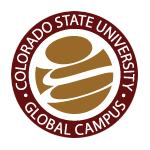
Founded in 2007, CSU-Global Campus is a public online university part of the Colorado State University System, headquartered in Greenwood Village, Colorado, outside of Denver. Colorado State University-Global Campus (CSU-Global) is one of the three separate campuses in the Colorado State University System. It is the country’s first and only 100% online, independently accredited, state, nonprofit university; it is not a virtual option supporting a bricks-and-mortar institution. The school initially developed from a $12 million grant from the CSU Board of Governors, and has grown from an inaugural class of 200 to a student enrollment of over 17,000, with more than 8,000 graduates. All courses are specifically aimed at working professionals and adult learners, and curricula emphasize developing practical skill sets to carry into employment. Further, CSU-Global offers a unique affiliate program with a number of government agencies and private organizations – including Farmers Insurance Group, AT&T, Otterbox, State of Colorado, State of Utah, and the State of Nevada – which offer discount incentives to employees wishing to continue their education.
CSU-Global Campus’ bachelor’s in Accounting includes 51 credits in the field – courses like The Legal and Ethical Environment of Business, Principles of Accounting, Finance for the Private Sector, Quantitative Business Analysis, Federal Individual Taxation, Government and Nonprofit Accounting, Business Taxation, Cost Accounting, and Information Systems for Accounting, among others. All students must also complete a capstone and practicum in order to gain valuable real-world exposure and demonstrate mastery of material. From there, students have the opportunity to add a specialization to their degree, choosing from one of nearly 20 options, including Business Administration, Criminal Forensics, Information Technology Management, Operations Management and Supervision, Public and Non-Profit Management, and Small Business and Entrepreneurship. In particular, all graduates of the CSU-Global Campus’ program will be prepared to solve domestic and international accounting issues, produce financial and business reports, and analyze emerging trends in the field.
- Homepage
- Total Program Cost: $42,000
3. Indiana State University
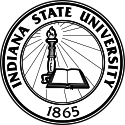
Founded in 1865, Indiana State University is located in Terre Haute and has a student body of approximately 13,500. The school is classified as a Doctoral University by the Carnegie Foundation, and both the Princeton Review and US News rank it among the best schools in the Midwest region. Six colleges – Arts and Sciences, Business, Education, Professional Studies, Health and Human Services, Technology – offer more than 100 undergraduate majors, and there are bachelor’s, master’s, and doctoral degrees offered, plus a education specialist track. With nearly 65% of classes at 30 students or less, courses are intimate and collaborative, allowing for a tight-knit educational community and learning experience. ISU has a strong alumni network of 100,000, with graduates in business, politics, the arts, and more.
Indiana State’s online BS in Accounting consists of 27 credits in the field, plus general education requirements and a business core. Accounting courses include Financial Accounting, Cost Accounting, Accounting Systems, Federal Income Taxation, and Auditing Theory and Practice. Students then have the opportunity to customize the degree through 9 credits of electives in disciplines like Not-for-Profit Accounting and Contemporary Issues in Cost and Managerial Accounting. In addition, students may add a minor to the degree, such as Forensic accounting, Finance, or Insurance and Risk Management. Full-time students on the 120-credit track may complete the degree in four years, though part-time delivery is also available. Further, ISU’s generous 90-credit transfer policy allows those with previous undergraduate credits to waive course work outside the degree.
- Homepage
- Total Program Cost: $43,072
4. Central Methodist University
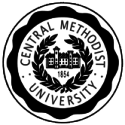
Central Methodist University, founded in 1854, is located in Fayette, Missouri. With a student enrollment of approximately 5,500, SMU offers associate, bachelor, and master degrees across a wide range of disciplines, including Business, Criminal Justice, Health Sciences, Political Science, Sociology, Biology, and more. The student-to-faculty ratio is 16.5:1, and average class size is 17, promoting an intimate, collaborative educational environment. While operating under the liberal arts model, CMU stresses practical, career-driven curricula that prepare students for the professional world. The school has also added an online program to cater to the scheduling demands of working professionals. Notable alumni have gone on to careers in politics, entertainment, the military, and more.
Central Methodist’s bachelor in Accountancy consists of 54 credits in the major. Course requirements include Accounting Principles, Fraud Examination, Cost Accounting, Governmental and NFP Accounting, Auditing, Business Law Contracts, Business Finance, and Production Operations Management, among others. Upon graduation, students will have an understanding of: key business and accounting processes; business analysis and communication; accounting, tax, and auditing literature; and relevant legal issues, marketing perspectives, and management processes. CMU’s online courses are designed for maximum flexibility, with options for accelerated 8-week delivery blocks or traditional 16-week semesters. Graduates of the program have sat for the CPA, and many have pursued advanced degrees in law, actuarial science, health care, and hospital administration. Some have completed MBAs.
- Homepage
- Total Program Cost: $30,000
5. Capella University
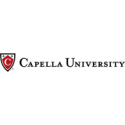
Capella University is a largely online institution of higher learning in Minneapolis, Minnesota. Having specialized in distance education since 1993, Capella has a student enrollment of approximately 39,000, coming from all 50 states and 61 different countries. There are 51 degree programs, in addition to 165 specialization options and 50 certificate programs. Most Capella students are working professionals and/or continuing learners completing their degrees on a part-time basis; 46% of students are enrolled in master’s programs, 26% in doctorate or EdS, and 25% in bachelor’s. All Capella degrees emphasize building professional skill sets for real-world needs, and staff are closely aligned with experts in each respective field – professional associations, state licensure boards, etc. – to ensure curricula fit demands. 96% of employers rate the performance of Capella graduates as exceptional. In addition, Capella holds valuable alliances with more than 500 organizations, including 19 Fortune 500 Companies.
Capella’s BS in Accounting includes 48 credits in the major. Requirements include Statistical Reasoning, Financial Accounting, Managerial Accounting, Cost Accounting for Planning and Control, Income Tax Concepts and Strategies, Contemporary Auditing, and more. From there, students have the opportunity to concentrate in Business Intelligence, Finance, Health Care Management, Human Resource Management, Management Leadership, Marketing, or Project Management. Courses deliver in accelerated 5 or 10-week formats, or the university’s FlexPath option allows students to complete the degree on a self-paced schedule. Further, Cappella has a generous transfer policy of up to 135 credits, which can be earned through previous academic credits or prior learning assessments. All Capella classes are designed for maximum flexibility, and, for students unsure if online learning fits their learning style, free one week mini-courses are available for trial.
- Homepage
- Total Program Cost: $47,808
6. Colorado Technical University
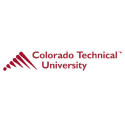
Colorado Technical University, founded in 1965, is located in Colorado Springs (with a satellite campuses in Denver). Offering bachelor’s, master’s, and doctorate degrees, in addition to professional programs, the school has a student enrollment of approximately 20,000 (many of whom are online) and over 70,000 alumni worldwide. Among its areas of study include Business & Management, Engineering & Computer Science, Healthcare, Information Systems & Technology, Nursing, Project Management, and Security Studies. Through its distance learning technology, M.U.S.E. (My Unique Student Experience), CTU allows students to choose how they learn, whether by watching, viewing, reading or hearing. Further, CTU offers their trademark Fast Track for bachelor students, which allows students to place out course work through prior-learning assessments, accelerating graduation time up to 30%. This highly flexible and tailored approach has earned CTU the praise of many publications, and the online program is widely considered among the most innovative available, recognized as the “Best of the Best” in the Education and Academia category of the Computerworld Honors Program.
Colorado Tech’s BS in Accounting 117 credits in the major. Core requirements include Auditing, Cost Accounting, Tax, Government & Not for Profit Accounting, Global Managerial Economics, Management Fundamentals, International Business Communications, Organizational Behavior Principles, Operations Management, Computerized Accounting, and Financial Statement Analysis, among others. (Note that all courses align with the educational standards of the American Institute of Certified Public Accountants (AICPA).) For those with previous academic or life experience, CTU offers a experiential learning credits (up to 8 for the master’s track) that may waive course material in which students are already proficient and accelerate degree completion time. Individual accelerated courses may be available, as well. Note also that there are start dates throughout the year so students can begin their degrees according to their own schedules.
- Homepage
- Total Program Cost: $49,472
7. Auburn University
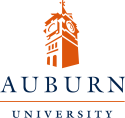
Auburn University, founded in 1856, is a public research university with an enrollment of over 27,000 students. Ranked among the top 50 public universities for more than two decades, the university has received high marks from Forbes, Washington Monthly, Peterson’s Guide, and US News, among others. There are 140 degrees spread across 13 schools; and in particular, Auburn is known for its Interior Design program (ranked the #1 undergraduate program in the country), Landscape Architecture, Architecture, Veterinary Medicine, Engineering, Forestry, Pharmacy, and Business. Auburn has graduates nearly 300,000 students, and distinguished alumni include the likes of Apple CEO Tim Cook, Wikipedia Co-Founder Jimmy Wales, actress Octavia Spencer, and a number of politicians, professional athletes, writers, and more.
Auburn’s online BS in Accounting is designed for second-degree seeking students who have already completed an undergraduate degree in another field (preferably business). Major course requirements include Intermediate Accounting, Cost Accounting, Business Processes & Internal Controls, Accounting Information Systems, Auditing & Assurance Services, and Income tax. From there, students complete 9 hours of electives to customize the curriculum to fit their professional interests and needs. Consisting of only 30 hours, student can expect to complete the degree in as little as 5 semesters, even while continuing full-time work. All classes are asynchronous, and each student receives a personal academic advisor to help set and track academic success goals. Other accounting programs offered online include certifications and master’s tracks.
- Homepage
- Total Program Cost: $23,325
8. Western Governors University

Western Governors University is a private, nonprofit, and 100% online university based in Salt Lake City, Utah, and founded in 1995 by 19 state governors with the goal of creating a flexible, self-paced higher education degree. In particular, WGU distinguishes its offerings through competency-based credits that award students for previous life and work experience, which accelerates degree completion time, lowers costs, and reduces redundant course work. For its innovative work, WGU has been recognized by TIME Magazine, Fast Company, NBC Nightly News, CNN, and many more; and in 2011 the Bill and Melinda Gates Foundation awarded the university $4.5 million in funding. It is the country’s top producer of math and science teachers, and won the 21st Century Award for Best Practices in Distance Learning from the United States Distance Learning Association several times. The school’s current enrollment is approximately 70,000, with over 60,000 alumni.
Western Governor’s BS in Accounting totals 121 competency units (including general education requirements), with key courses in Business, Leadership and Management, Business of IT, Accounting, Marketing and Communication, Quantitative Analysis for Business, Management, Finance, and Business Law and Ethics, among others. All students also must complete a capstone project to demonstrate mastery of material and gain valuable experience. All course work is designed for maximum flexibility, with asynchronous classes to accommodate working professionals. While most students complete the degree in two years, students on an accelerated pace with previous academic credits may finish in as little as one year; students can expect to work about 20 hours per week. All students also benefit from a personal Faculty Mentor to set academic goals, customize degree plans, and track progress.
- Homepage
- Total Program Cost: $24,000
9. Bemidji State University
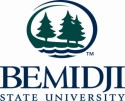
Founded in 1919, Bemidji State University is a public institution of higher learning in Bemidji, Minnesota, with five colleges in Arts & Sciences, Health Sciences & Human Ecology, Nursing, Graduate Studies, and Business, Technology & Communication. There are 65 undergraduate majors and pre-professional programs, plus 4 graduate programs; popular majors including education, business, science, technological studies, criminal justice, and psychology. In addition to traditional degree tracks, the school also offers several integrative programs, such as Indigenous Studies, International Studies, Liberal Studies, Pre-Professional Studies, and Women’s Studies Gender Studies, among others. With a total enrollment of about 5,300 students, BSU maintains a 20:1 student-to-faculty ratio to support an intimate and collaborative educational environment. Further, the university is exceptionally diverse for a school of its size, with students from 38 countries around the globe.
Bemidji State’s online BS in Accounting is a 71-credit program that requires students to have completed an associate’s degree or the equivalent liberal arts prerequisites. Core requirements include Business Law, Accounting Systems, Cost Accounting, Financial Management, Auditing, Strategic Management, and Advanced Accounting, among others. For maximum flexibility, the program offers tracks on two-, three, and four-year tracks, or one course per semester to accommodate students’ unique schedules. All online students have access to career services, academic advising, 24/7 tech support, tutoring, and an e-library; plus, the Center for Extended Learning is dedicated to supporting all distance students, offering assistance from the admissions process through graduation. For those interested, BSU offers minors in Accounting and Fraud Examination, as well.
- Homepage
- Total Program Cost: $30,840
10. University of Minnesota Crookston
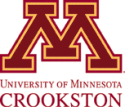
Founded in 1905, the University of Minnesota Crookston is part of the 5-campus state system, offering 34 undergraduate majors, 39 concentrations, and 22 minors, through four departments: Agriculture and Natural Resources; Business; Liberal Arts and Education; and Math, Science and Technology. The five most popular majors are Business Management, Natural Resources, Equine Science, Animal Science, and Accounting. Crookston boasts a student-to-faculty ratio of 18:1, and nearly 60% of all classes are under 20 students, encouraging an intimate, collaborative learning environment. The university also emphasizes an experiential learning approach, and many students complete applied internships, research projects, and service learning activities. In 1993, Crookston became the first college in the country to issue laptop computers to every full-time student and faculty member; it remains a leader in incorporating technology into its curricula and pedagogical method.
Crookston’s online BS in Accounting consists of 63 major credits. Course requirements include Accounting Systems, Cost Accounting, Auditing, Income Tax, Managerial Finance, Legal Environment in Business, Business Law, Principles of Management, Business Writing, Business Ethics, and Marketing, among others. The university also offers a certificate in Taxation. In particular, graduates of the program will be prepared to operate financial and cost accounting systems and demonstrate an understanding of U.S. tax fundamentals for individuals and businesses. For maximum flexibility all courses deliver on an asynchronous basis, and there is no additional out-of-state tuition. Further, with a generous transfer policy, students with previous academic credits may be eligible to accelerate course work. Crookston also offers a minor in Accounting and related bachelor degrees in Management and Entrepreneurship.
- Homepage
- Total Program Cost: $46,584
11. Walden University

Walden University, headquartered in Minneapolis, Minnesota, is part of the Laureate Education group, with 80 universities across nearly 30 countries worldwide. Walden was founded in 1970, before becoming one of the first fully online higher learning institutions in the 1990s, and now offers more than 80 degree programs – bachelors, masters, certificates, and doctorates – in addition to over 370 specializations and concentrations. Popular areas of study include management, nursing, education, public policy and administration, social work, and counseling, among others. Further, with an enrollment of over 47,000, Walden boasts a highly diverse, wellepresented student body from all 50 states and more than 150 countries. In order to best accommodate the school’s working professionals and adult learners, Walden also has affiliations with a number of organizations, including school districts, healthcare centers, corporations, and nonprofits, to help reduce tuition costs and teach relevant professional skills.
Walden’s online BS in Accounting consists of 100 credits in the major. Course requirements include Financial Accounting, Business Statistics, Microeconomics, Business Law, Managerial Accounting, Accounting Information Systems, Government and Nonprofit Accounting, Ethical Leadership, Organizational Communication, and Marketing, among others. Form there, students have the opportunity to tailor the degree to professional needs and interests through concentration credits and electives. Plus, in addition to a general track, Walden also offers a Public Accountancy track. All online course work is designed for maximum flexibility to accommodate students’ busy schedules, and students are eligible to transfer up to 135 credits into the program, which will significantly accelerate degree completion time. Upon graduation, students will be prepared to: effectively communicate about accounting and business practices; analyze sources of organizational risk; and apply legal, regulatory, ethics principles in a professional accounting context.
- Homepage
- Total Program Cost: $57,920
12. Liberty University
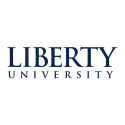
Liberty University is a private Christian school in Lynchburg, Virginia. (Liberty is the largest, private, nonprofit university in the United States.) Founded in 1971, the school has been leading distance education efforts since 1985, with 100,000 students enrolled in online classes today and 14,000 enrolled on campus. In total, Liberty offers more than 500 academic programs – bachelor’s, master’s, and doctorate, plus professional certifications – with 250 available online. All online course work is designed for maximum flexibility, with working professionals and adult learners in mind, and many programs offer intensive, on-campus summer sessions that can accelerate degree completion time. Further, Liberty’s generous transfer policy allows students with previous academic credit or work/life experience to waive select course work. (Pending individual approval, students may also transfer credits in through military service, MOOC work, examinations, and portfolios.) Note that, as a Christian university, Liberty incorporates religious concepts and values into all degrees, and several core curricula include Biblical course work.
Liberty’s online BS in Accounting consists of 54 major credits. Requirements include Financial Accounting, Managerial Accounting, Cost Accounting, Accounting Information Systems, Accounting Ethics, Taxation, Governmental & Not-for-Profit Accounting, and 15 credits of business courses. In particular, Liberty’s curriculum focuses on critical thinking, communication skills, and emerging technologies and applications to solve complex accounting issues, and graduates will be prepared for careers in a wide range of fields, from accounting and business, to education, government, and public accounting. All online students benefit from a wealth of resources, including an e-library, online writing center, tutoring, and an academic success center. For those interested, Liberty offers associate and certificate options in Accounting, as well.
- Homepage
- Total Program Cost: $45,000
13. University of Alabama at Birmingham

The University of Alabama at Birmingham has a student enrollment of approximately 18,500, representing more than 100 countries across the world. Offering bachelor’s, master’s, doctoral, and professional degrees. There are 140 degrees available in a wide range of areas, including social and behavioral sciences, the liberal arts, business, education, engineering, and health sciences. UAB is particularly known for research, ranking 20th in the country for federal research and development funding and 1st in Alabama, and the school has been recognized by Princeton Review, Bloomberg Businessweek, Forbes, and US News. Notable alumni have gone on to successful careers in business, politics, science, media, and professional sports.
UAB’s BS in Accounting consists of 48 major credits. Course requirements include Financial Accounting, Accounting Information Systems, Cost Accounting, Income Taxation, Internal Auditing, Financial Accounting, International Accounting, Management Processes and Behavior, Business Communications, and Operations Management, among others. Students also have the opportunity to specialize in either Forensic Accounting or Information Technology Auditing. From there, students take capstone courses in External Auditing and Accounting to demonstrate mastery of material. (Internships are available, too.) The curriculum is designed for maximum flexibility to accommodate working professionals, and course work emphasizes emerging technologies in the field to prepare students for real-world scenarios. Note that the program is endorsed by the Institute of Management Accountants for successful CMA exam preparation.
- Homepage
- Total Program Cost: $61,848
14. Old Dominion University

Old Dominion University is a public university in Norfolk, Virginia, with satellite campuses in Hampton Roads. Founded in 1930, the school is one of the largest institutions of higher learning in the state at an enrollment of 25,000. Academic offerings are large and diverse: 73 bachelor’s, 60 master’s, and 35 doctoral degrees, across six colleges in Arts and Letters, Business, Education, Engineering and Technology, Health Sciences, and Sciences. Among the first of its kind, Norfolk’s distance education program launched in 1994 and now offers 60 programs, which can be taken 100% online or in hybrid formats at one of Old Dominion’a 50 partner locations in Virginia, Arizona, or Washington. There are over 124,000 in all 50 states and 67 countries, with notable graduates including game show host Ben Bailey, former astronaut Michael Bloomfield, Admiral William Joseph Fallon, ESPN Sportscenter host Jay Harris, and numerous professional athletes, business executives, and politicians.
Old Dominion University’s BS in Accounting consists of 120 total undergraduate hours, 30 of which must be completed at ODU. (For those with previous academic experience, the school has a generous transfer policy.) Course requirements include Statistical Data Analysis, Managerial Economics, Legal Environments of Business, Principles of Information Technology, Contemporary Organizations, Managerial Accounting, Taxation, and Accounting Information Systems, among others. Students then complete elective course work to tailor the curriculum to professional needs and interests. Online courses are designed for maximum flexibility, and 96% of ODU online alumni report being very satisfied with the learning experience. Resources include academic advising to map out degree plans, 24/7 tech support, the Blackboard learning platform, web conferencing, free access to Lynda.com online training library, and more.
- Homepage
- Total Program Cost: $42,000
15. Brescia University

Brescia University is a private Roman Catholic university in Owensboro, Kentucky, established in 1925. With an enrollment of under 1,000, the school has a student-to-faculty ratio of 14:1 and emphasizes an intimate, collaborative, and religious-oriented educational experience. Six schools are divided into business, social and behavioral sciences, humanities, education, math and natural sciences, and fine arts, and Brescia offers degrees at the associate’s, bachelor’s, and master’s degree level – plus certificate options. Brescia also has one of the best online programs in Kentucky, with nearly twenty different programs. Under the Ursuline tradition of personal and social transformation through education, Catholic values and concepts are incorporated into the general curriculum.
Brescia’s online BS in Accounting consists of 48 major credits. Course requirements include Business Law, Business Statistics, Management Information Systems, Finance, Economics, Marketing, Accounting Software Applications, and more. Students then have the opportunity to select from a range of electives to tailor the degree to areas of professional interest. As an accelerated program with 8-week delivery blocks, students can complete the degree in as little as two years, and the university’s generous transfer policy allows up to 86 credits from previous general education requirements. (The degree total 128 credits.) Also note that Brescia’s online programs are primarily for adults and working professionals with major additional responsibilities, thus all course work is highly flexible. For those interested, Brescia also offers an accelerated postgraduate Certificate in Accounting Program designed for students who have already completed a full bachelor’s in another field.
- Homepage
- Total Program Cost: $54,300
16. Champlain College

Founded in 1878, Champlain College is a private school in Burlington, Vermont. Champlain offers bachelor, certificate, and master programs in more than 80 areas, and has an enrollment of 2,000 students from 41 states and 22 countries around the world. The school’s unique “upside-down” curriculum allows energetic students to take in-depth, advanced classes in their major starting in the first semester. Popular majors include Business, Graphic Design, Electronic Game Programming, Computer and Digital Forensics, and Radiography. Champlain’s core curriculum is an interdisciplinary program with a structured progression: freshmen focus on the self, sophomores focus on the community, and juniors on international issues. While fundamentally liberal arts, Champlain also stresses real-world skills and encourages extra-classroom learning through the Life Experience and Action Dimension (LEAD).
Champlain’s online BS in Accounting consists of 63 major credits. Requirements include Financial Accounting, Managerial Accounting, Forensic Accounting, Federal Taxes, Auditing, Business Law, Managing Behavior in Organizations, Corporate Finance & Financial Markets, Strategic Marketing Process, and more. All students complete a capstone course in order to graduate. As an additional benefit, students in the program earn 3 certificates concurrent with the curriculum in order to bolster credentials (these include in Advanced Accounting, Cost Accounting, and Forensic Accounting). Most courses deliver in accelerated 7-week blocks, are asynchronous, and begin six times throughout the year to fit students’ individual schedules. Further, the school allows up to 45 credits to be transferred into the overall degree. For those interested, an associate’s in Accounting is available, as well. The bachelor’s follows the core competency framework of the American Institute of Certified Public Accountants (AICPA).
- Homepage
- Total Program Cost: $61,576
17. New England College

New England College is a private liberal arts school in Henniker, New Hampshire, offering 36 bachelor’s, 12 master’s, several associate’s degrees, and one doctoral program. With an emphasis on experiential learning, NEC’s enrollment of 2,600 (1,000 undergraduate, 1,000 graduate, 600 online) benefit from a 13:1 student-to-faculty ratio, promoting a highly intimate, collaborative educational experience. Among the most popular areas of study include, in order, Business, Psychology, Criminal Justice, Education, Biology/Health Sciences, Kinesiology, and Liberal Studies. Distinctions include the President’s 2014 Higher Education Community Service Honor Roll and being ranked among Time‘s “Colleges That Have Diversified the Most.”
New England’s online BS in Accounting consists of 40 major credits. Major requirements include Microeconomics, Macroeconomics, Financial Reporting, Cost Accounting, Federal Taxation, Financial Accounting, Management Accounting, Auditing & Attestation, and two accountingelated electives. Courses deliver at an accelerated pace, and NEC offers a generous transfer policy for students with previous academic credit. Resources include online chat rooms, group discussion boards, video conferencing, advising, 24/7 tech support, and career services – all powered by University Alliance Online, the largest facilitator of e-learning in the country, with over 450,000 enrolled.
- Homepage
- Total Program Cost: $48,600
18. Saint Joseph’s University
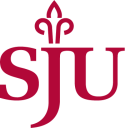
Saint Joseph’s University is a private Roman Catholic Jesuit university located in the Overbrook neighborhood of Philadelphia. Founded in 1851, it is the seventh oldest Jesuit university in the United States and a member of the Association of Jesuit Colleges and Universities. With a student body of approximately 9,000, the school offers 60 undergraduate majors, 53 graduate programs, 28 study abroad programs, 12 special-study options, and more. Nearly all tenure-track professors hold a terminal degree in their field, and Saint Joe’s has been ranked by both U.S. News and the Princeton Review as one of the top universities in the northeast. Further, in recent years, SJU has increased their online offerings, recognizing a fundamental shift in education and a growing demand for flexible distance learning. The school’s 60,000 living alumni are spread across all 50 states and 59 countries worldwide.
Saint Joe’s BSBA in Accounting consists of 63 major credits. Major requirements include Financial Accounting, Managerial Accounting , Micro and Macroeconomics, Business Law, Business Ethics, Management Information Systems for Managers, Introduction to Management, Human Resources Management, Federal Income Taxes, Managerial and Cost Accounting, and Auditing, among others. Students then select additional elective credits to tailor the degree to an area of professional needs or interests. For students interested in a CPA fast track, the degree is particularly helpful and seamlessly transitions into the school’s master’s program. (Graduates will waive two courses in the master’s.) Asynchronous courses are designed for flexibility, and SJU offers a generous transfer policy for students with previous academic credits. Note that SJU offers an online Accounting Information Systems major, as well. Additional majors in the business degree include Sales & Marketing, Management, Information Technology Management, Banking, and Senior Living Leadership.
- Homepage
- Total Program Cost: $39,720
19. Upper Iowa University

Upper Iowa University, established in 1857, is a private school in Fayette, with a total enrollment of approximately 6,100 students, many of whom are online or at the 25 education centers across the country and around the world in Hong Kong and Malaysia. The school has a student-to-faculty ratio of 17:1, allowing for individualized, intimate learning, and offers more than 40 majors in areas like art, business, conservation management, education, higher education administration, information technology, nursing, psychology, and science, among others. Following the core values of “Integrity, Excellence, Accessibility, Respect, Stewardship,” UIU places an emphasis on delivering education through a variety of traditional and new means to adapt to the needs of the modern world.
Upper Iowa’s online BS in Accounting consists of 21 major credits, plus 36 business core credits. Requirements include Intermediate Financial Accounting, Federal Taxation, Auditing, International Management, International Finance, Economics of International Business, Business Law, Quantitative Decisions in Business, and Business Law, among others. (Note that there are embedded elective options, too.) All courses are designed for maximum flexibility, and there are accelerated and self-paced, asynchronous options to fit students’ unique schedules. Further, there are six entry dates throughout the year, so students can choose the best time to begin their studies. Resources include online tutoring, a writing center, library resources, advising, career development, disability services, bookstore, and office of academic success, among others.
- Homepage
- Total Program Cost: $51,600
Carrie Morris
Author
Warren Dahl
Editor-in-Chief
